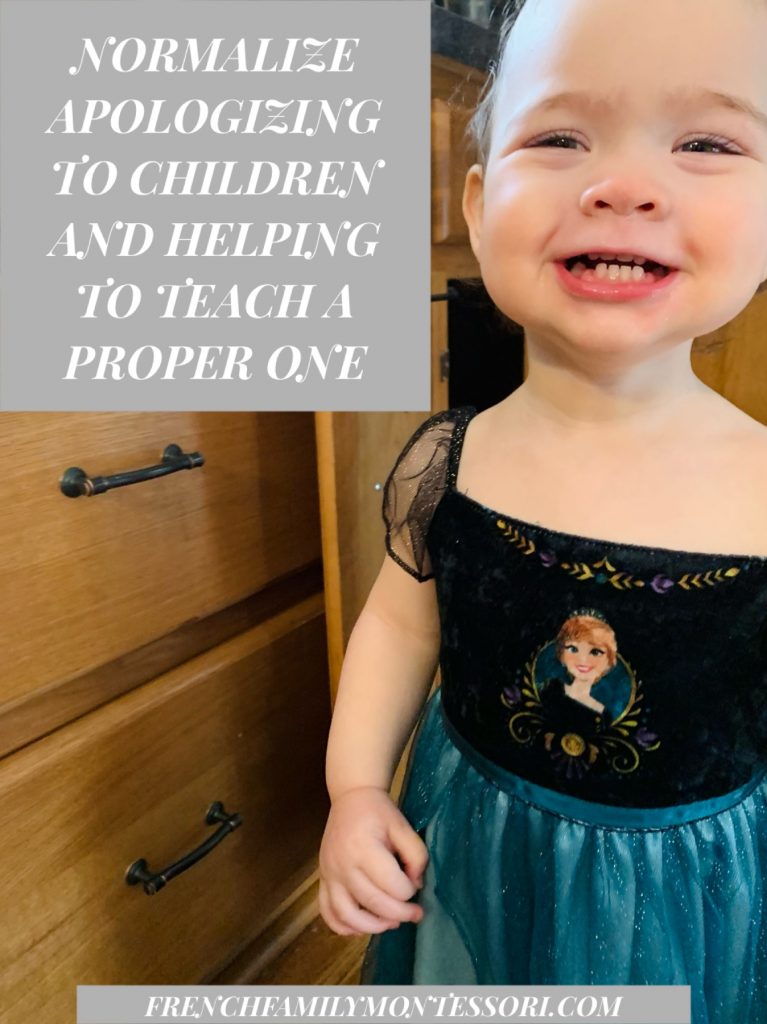
To some, apologizing to a child may not seem like an odd concept. Someone told me that it’s like a boss apologizing to an employee and just shouldn’t be done as it undermines authority. Now that seems odd to me. When you have done something wrong, regardless of your position, you should correct it and apologize.
I’ve also heard that apologies should be cautiously given out, limited, as if it’s possible apologize too much. I’d say that maybe too many wrongdoing are being done and that’s where the fault lies, not in the amount of apologies.
The other day an overreaction on my part caused E to heave strong emotions. She was startled and frightened. I made loud noice while jumping and rushing across the room to prevent her from placing a large hairball, that she had collected from the end of her broom, into her mouth. While a hairball doesn’t belong in the mouth of a toddler (or anyone, gross!), she wasn’t in serious, life threatening danger. So my reaction was a bit much. Regardless, the damage was done. While visibly upset, she refused to come to me for comfort. I waited patiently, sitting on the floor, until she was ready. I then apologized. Sorry for making a loud noice and jumping around thus scaring her. I was wrong and instead I should have, calmly, explained that things at the bottom of brooms aren’t meant to go into our mouths. I explained that I will try to be more mindful of hasty reactions. (The photos shared are actually after I had regained her trust.)
There’s just saying, “sorry,” then there’s giving a proper, true apology. When T was a lot younger, he thought you could do something, even if you knew you shouldn’t, say sorry and all would be well. So we learned this shouldn’t be the case and what a true apology should look like.
- Admit what wrong doing you have done.
- Explain why it was wrong.
- Ask, truly, for forgiveness.
- Explain how you plan on learning for what you did and what you will do to prevent it from occurring again in the future–and then practice it.
- Respect the emotions the other persons feels while providing space and time that is needed to rebuild trust.


We don’t force apologies, we model them when needed. I don’t want our children to give empty apologies. Now, as T is much older, we are able to see if someone gives a meaningful apology or not. Is someone truly remorseful or just sorry they got caught? We also learn that it’s okay to not forgive someone immediately, to take the time to see that they truly are working on what they said they would. We also know that by asking for forgiveness and learning to do better, we grow and become better versions of ourselves. Apologies aren’t a sign of weakness, but of strength.
Do you apologize to your children when in the wrong?
.
.
.
